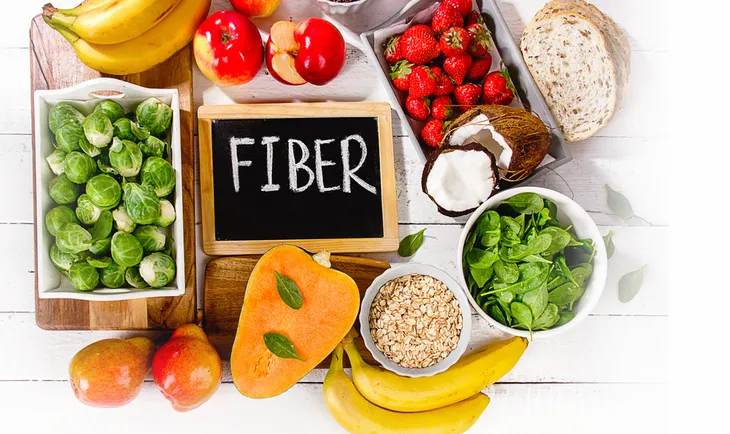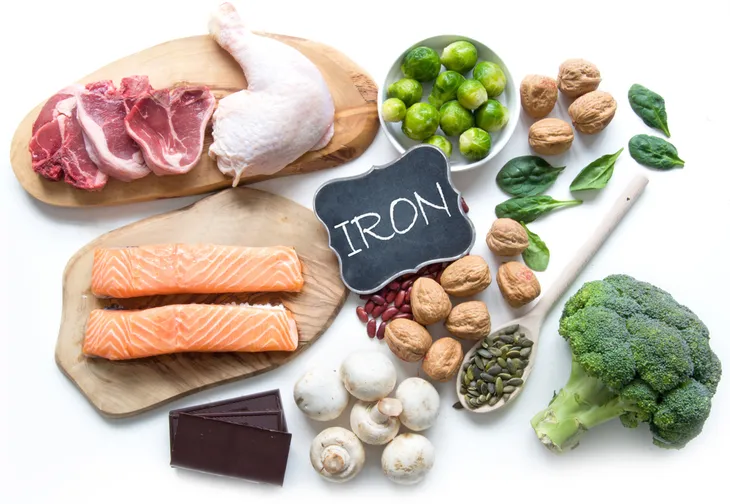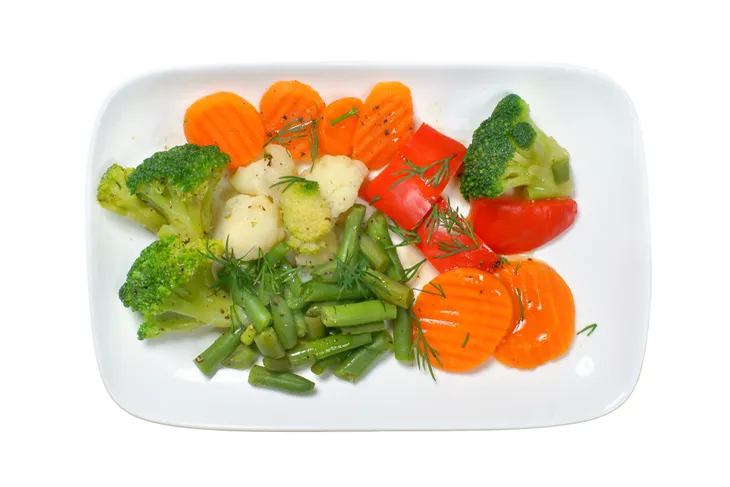Many folks who suffer from ulcerative colitis, a chronic inflammatory bowel disease (IBD), have different triggers for flare-ups. While there’s no single diet that will work for every patient, also keep in mind that as your colitis develops over time, you may also develop different nutritional needs and food triggers.
A food diary is a great tool to help you record and keep track of foods that work (i.e., low fat vs. high fat dairy) and don’t work (i.e., spicy foods, caffeine, carbonated drinks, high fiber foods, alcohol, refined sugar), as well as cooking methods (i.e., steaming vs. frying) and meals (i.e., small vs. large meals) that will help you visit the bathroom less frequently…
1. Fluids to Stay Hydrated
According to research from WebMD, staying hydrated is one of the most important aspects of a colitis sufferer diet. After all, ulcerative colitis flare-ups put you at dangerous risk of becoming dehydrated.
Focus on a diet filled with easily digestible fluids—such as water infused with a squeeze of real fruit, soup broth, and even fresh smoothies as a meal replacement when your body can’t handle solid foods. Think of fluids as a great method for infusing your body with much-needed nutrients.
2. Fibrous Facts
Many ulcerative colitis patients report high fiber foods as dynamite during flare-ups. For this reason, experts from the Crohn’s and Colitis Foundation of America (CCFA) recommend leaving fibrous foods out of your diet.
If foods like raw fruits and veggies (especially with skins), nuts, corn, whole grains, and seeds cause indigestion and cramping, look to adopting a low-residue diet. Many doctors recommend a low residue diet (or low fiber/special liquid diet). The CCFA says that many IBD patients adopt a low-residue diet to significantly minimize abdominal pain and other symptoms while working closely with their doctors to ensure a balanced intake of nutrients is maintained.
3. Consider Probiotics
Research studies from the National Institutes of Health recommend taking probiotics (in yogurt, liquid or pill supplements) in order to increase “good” bacteria and aid with ulcerative colitis indigestion and other painful symptoms.
Probiotics work to increase the “healthy” bacteria in the digestive system—the bacteria in your gut that helps to eradicate the system of things like lingering antibiotics, which can cause stomach upset and diarrhea. NIH studies report that probiotics also increase mucus production in the digestive system with a thicker mucus layer that will guard the body against bacterial invaders.
4. Blast Fatigue with Iron
Ulcerative colitis patients who suffer from frequent flare-ups accompanied by bleeding ulcers and bloody diarrhea risk becoming anemic. Anemia is a condition that results from low hemoglobin or healthy red blood cells (RBCs).
This is why it’s so common for UC patients to suffer from fatigue. Luckily, an increase in iron rich foods—such as eggs (with yolks), spinach, fish, artichokes, raisins, and lean meats can increase blood iron levels and waning energy levels.
5. Beware of Dairy
Akin to caffeine and carbonated beverages, dairy foods tend to be troublesome for ulcerative colitis patients. In fact, according to statistics from the National Institutes of Health, approximately 44-percent of UC patients are lactose intolerant.
If you’ve linked lactose—found in yogurt, milk, and hard cheeses—with stomach cramps, indigestion, and bloating, you may be lactose intolerant. You can shun dairy by reaching for soy and almond based milks instead, but be sure to make up the difference with calcium and vitamin D rich foods (i.e., egg yolks, fatty fish, fortified cereals, and soy).
6. Cook those Veggies
All too often raw veggies—particularly cruciferous cabbage, Brussels sprouts, cauliflower, and broccoli—are linked to ulcerative colitis indigestion, diarrhea, and gas pain. However, banishing vegetables from your diet can leave you malnourished when you require a balanced diet.
Instead, pinpoint the troublesome foods by keeping a food journal. Many times it’s the method of food preparation and not the food itself that’s the issue. Many UC patients report that steaming or baking veggies versus eating them raw makes a difference.
7. Eat a Well-Balanced Diet
Eating a balanced diet while living with ulcerative colitis can be very difficult—especially if major food groups (i.e., dairy or vegetables) exacerbate painful symptoms.
If you suffer from frequent bouts of diarrhea—you can become malnourished very quickly. WebMD suggests working closely with a doctor or registered dietitian to ensure you’re getting the most nutritious, well-balanced diet possible.










